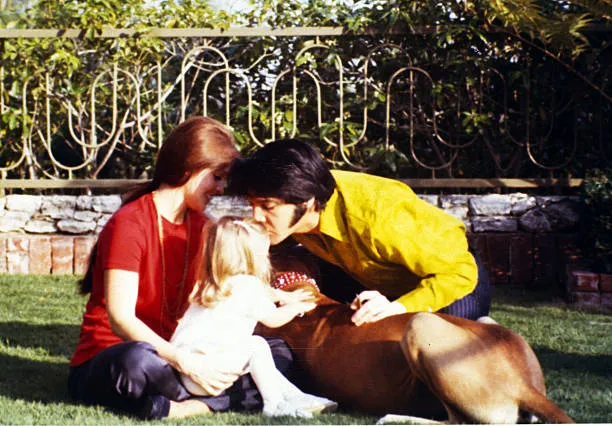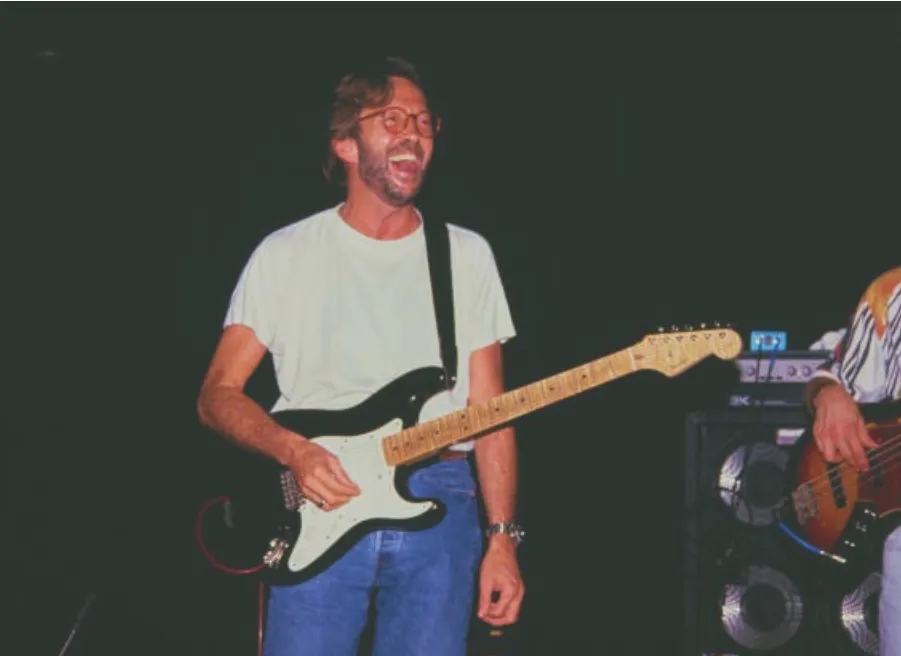Eric Patrick Clapton, born on March 30, 1945, in Surrey, England, is widely regarded as one of the most influential guitarists in the history of rock music. His career, spanning over five decades, has earned him the nickname "Slowhand" and the unofficial title of "Guitar God."
Early Career and The Yardbirds:

Clapton's professional music career began in 1963 when he joined The Yardbirds. His blues-influenced style quickly gained attention, and he earned the nickname "Slowhand" due to his string-bending technique and the slow clapping from audiences as he changed broken guitar strings on stage.
Cream and Supergroup Era:

In 1966, Clapton formed Cream with Jack Bruce and Ginger Baker. This supergroup revolutionized rock music with their heavy, blues-infused sound and extended improvisations. Hits like "Sunshine of Your Love" and "White Room" cemented Cream's place in rock history.
After Cream's dissolution, Clapton joined another supergroup, Blind Faith, before embarking on a solo career and forming Derek and the Dominos. It was with the latter that he recorded "Layla," one of his most iconic songs.
Solo Career:

Clapton's solo career has been marked by both commercial success and critical acclaim. Albums like "461 Ocean Boulevard" (1974), "Slowhand" (1977), and "Unplugged" (1992) showcased his versatility as a musician and songwriter. His cover of Bob Marley's "I Shot the Sheriff" became a hit, introducing reggae to a wider audience.
Musical Style and Influences: Heavily influenced by blues artists like Robert Johnson and B.B. King, Clapton's style is characterized by his fluid phrasing, precise finger work, and emotive solos. He has been instrumental in bringing blues music to mainstream rock audiences.
Personal Struggles and Redemption:

Clapton's life has been marked by personal tragedies and struggles. He battled drug and alcohol addiction for years, eventually achieving sobriety in the late 1980s. The tragic death of his young son Conor in 1991 inspired one of his most poignant songs, "Tears in Heaven."
Accolades and Legacy:
Clapton's contributions to music have been widely recognized. He is the only three-time inductee to the Rock and Roll Hall of Fame (as a solo artist and as a member of The Yardbirds and Cream). He has won 18 Grammy Awards and is ranked second on Rolling Stone's list of "100 Greatest Guitarists of All Time."
Later Career and Philanthropy:

In his later career, Clapton has explored various musical styles, including blues, reggae, and pop. He has also dedicated himself to philanthropic efforts, founding the Crossroads Centre in Antigua, a treatment facility for drug and alcohol addiction.
Clapton has organized the Crossroads Guitar Festival multiple times, bringing together some of the world's greatest guitarists to raise funds for the Crossroads Centre.
Impact on Guitar Technology:

Clapton's preference for certain guitars and amplifiers has significantly influenced the guitar manufacturing industry. His association with Fender, particularly the Stratocaster model, has led to several signature models and inspired countless guitarists to emulate his equipment choices.
Conclusion:
Eric Clapton's influence on rock music is immeasurable. From his groundbreaking work with Cream to his successful solo career, Clapton has consistently pushed the boundaries of guitar playing and songwriting. His journey from a young blues enthusiast to a rock legend mirrors the evolution of rock music itself. Despite personal struggles, Clapton's passion for music has never wavered, and his legacy as one of the greatest guitarists of all time is secure.



